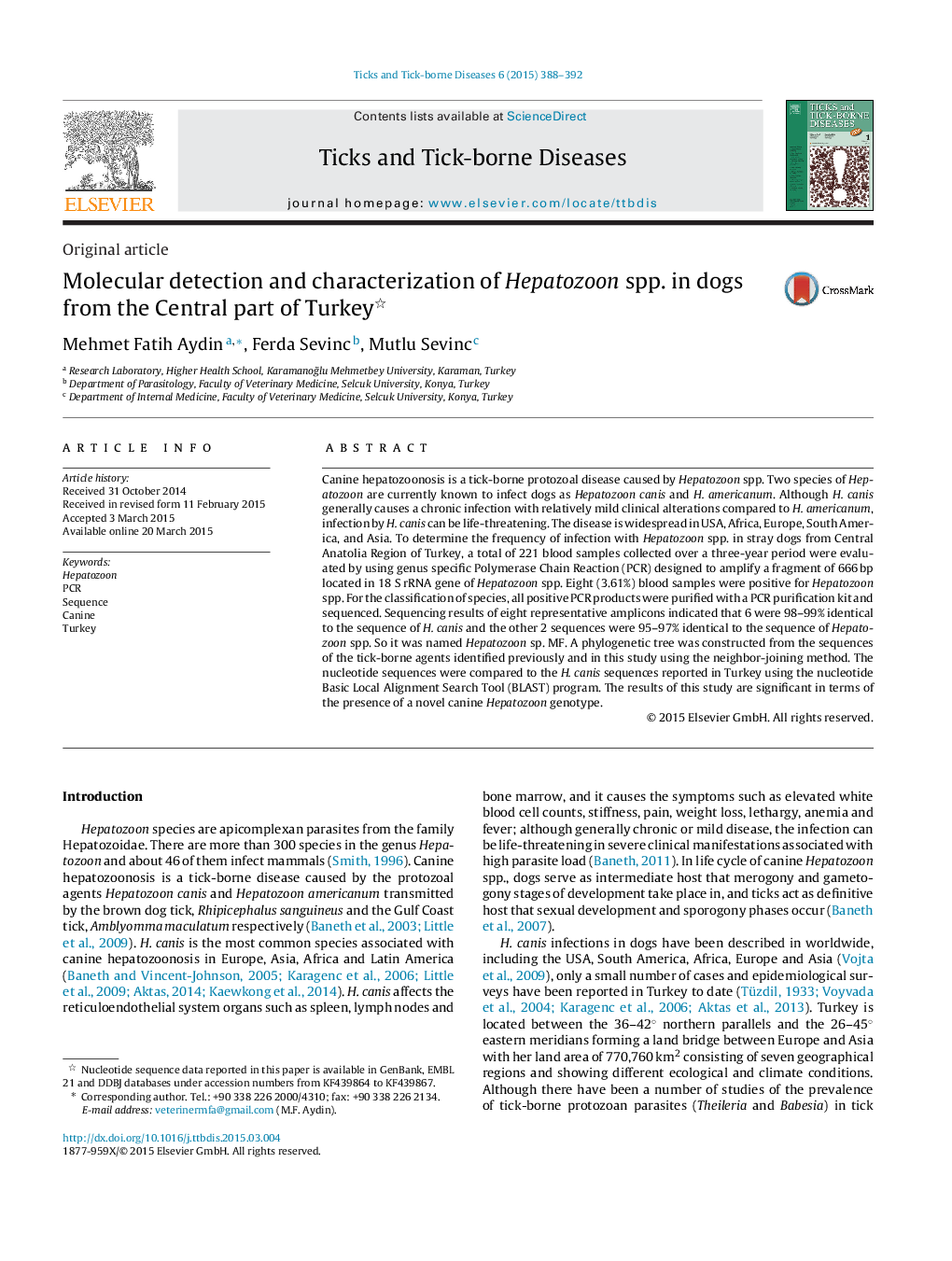| Article ID | Journal | Published Year | Pages | File Type |
|---|---|---|---|---|
| 2473939 | Ticks and Tick-borne Diseases | 2015 | 5 Pages |
Canine hepatozoonosis is a tick-borne protozoal disease caused by Hepatozoon spp. Two species of Hepatozoon are currently known to infect dogs as Hepatozoon canis and H. americanum. Although H. canis generally causes a chronic infection with relatively mild clinical alterations compared to H. americanum, infection by H. canis can be life-threatening. The disease is widespread in USA, Africa, Europe, South America, and Asia. To determine the frequency of infection with Hepatozoon spp. in stray dogs from Central Anatolia Region of Turkey, a total of 221 blood samples collected over a three-year period were evaluated by using genus specific Polymerase Chain Reaction (PCR) designed to amplify a fragment of 666 bp located in 18 S rRNA gene of Hepatozoon spp. Eight (3.61%) blood samples were positive for Hepatozoon spp. For the classification of species, all positive PCR products were purified with a PCR purification kit and sequenced. Sequencing results of eight representative amplicons indicated that 6 were 98–99% identical to the sequence of H. canis and the other 2 sequences were 95–97% identical to the sequence of Hepatozoon spp. So it was named Hepatozoon sp. MF. A phylogenetic tree was constructed from the sequences of the tick-borne agents identified previously and in this study using the neighbor-joining method. The nucleotide sequences were compared to the H. canis sequences reported in Turkey using the nucleotide Basic Local Alignment Search Tool (BLAST) program. The results of this study are significant in terms of the presence of a novel canine Hepatozoon genotype.
